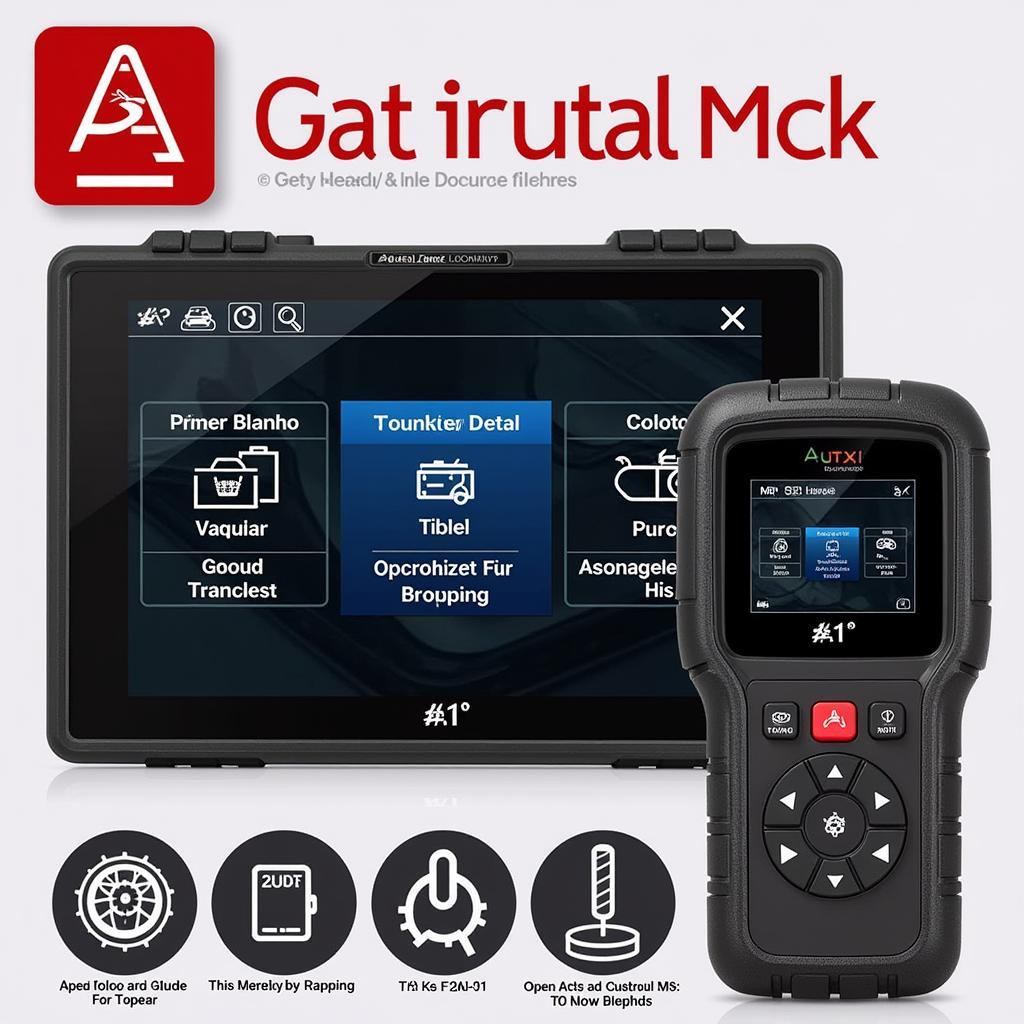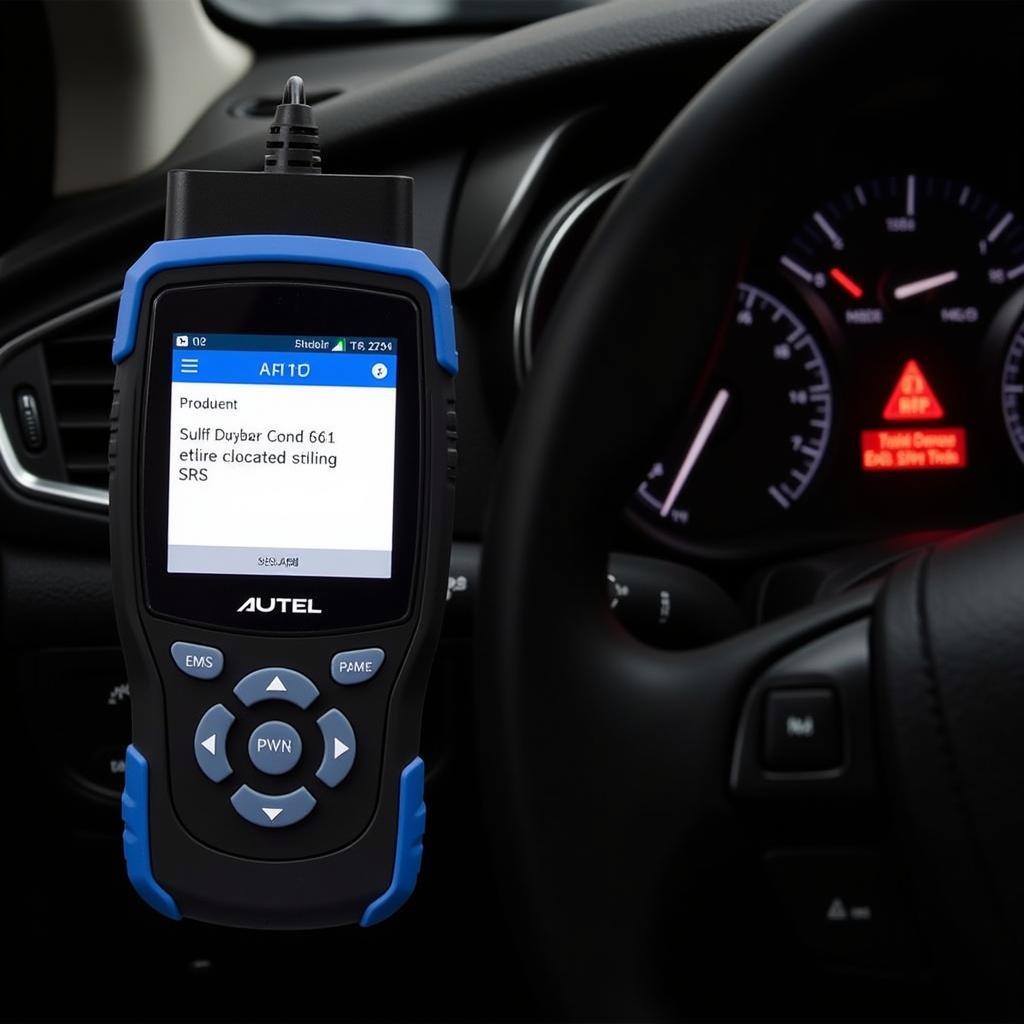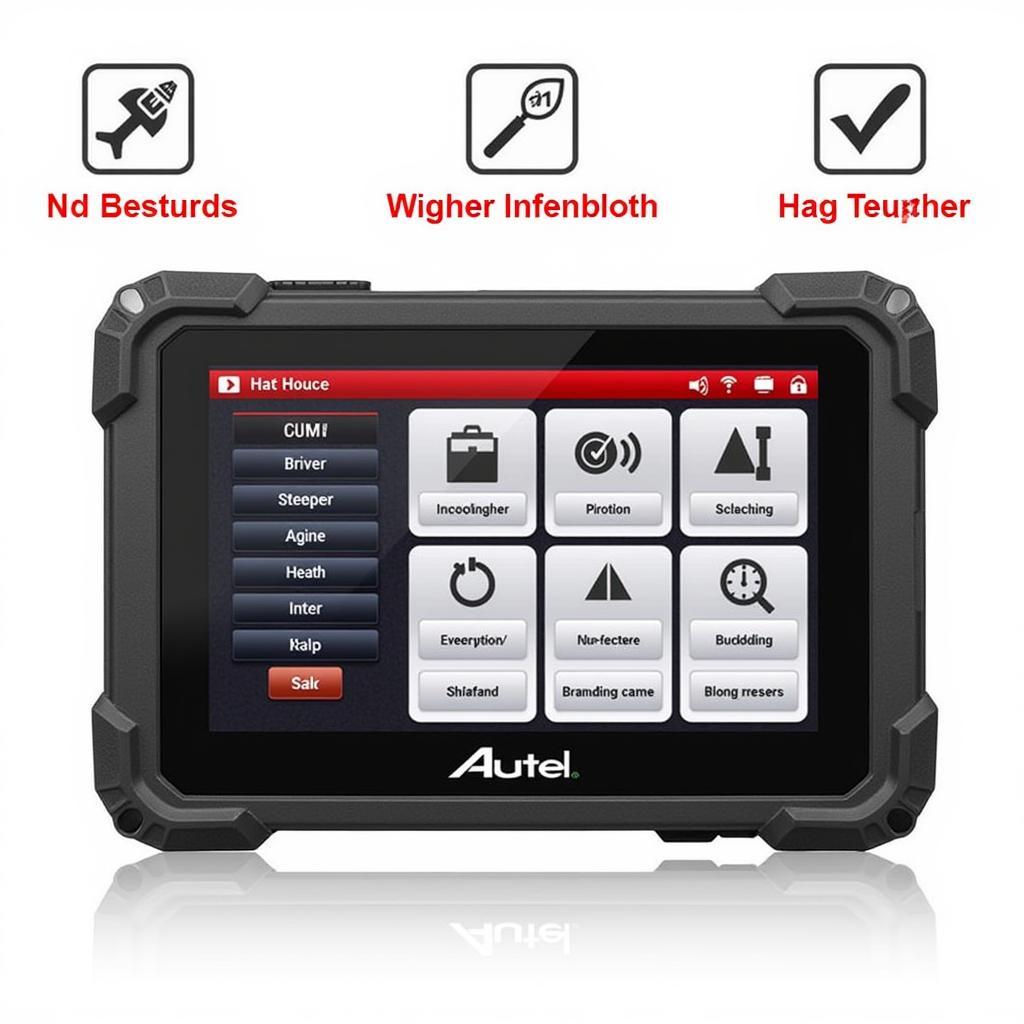Imagine cruising down the Pacific Coast Highway, the California sun warming your face, when suddenly a warning light flashes on your dashboard: TPMS. You glance down and see the dreaded low tire pressure warning. A flat tire can ruin a perfect road trip. But, thanks to TPMS (Tire Pressure Monitoring System) and tools like the Autel MX Sensor, staying ahead of tire issues is easier than ever.
Understanding the Importance of Autel MX Sensors
Whether you’re a seasoned mechanic in a bustling New York City garage or a car enthusiast tinkering in your Texas garage, understanding TPMS and the role of Autel MX Sensors is crucial. Let’s break it down:
What are Autel MX Sensors?
Autel MX Sensors are essentially small, sophisticated devices that live inside your tires, constantly monitoring the air pressure. They transmit this information to your car’s computer, alerting you if something’s amiss.
Why are they important?
- Safety First: Underinflated tires are a leading cause of accidents. MX Sensors provide early warnings, allowing you to address tire pressure issues before they become dangerous.
- Fuel Efficiency: Properly inflated tires reduce rolling resistance, leading to better fuel economy. Think of it as saving money at the pump!
- Extended Tire Life: Driving on underinflated tires causes uneven wear and tear, shortening their lifespan. MX Sensors help you get the most out of your tires.
autel-mx-sensor-inside-tire|Autel MX Sensor inside a Tire|A close-up image of an Autel MX Sensor installed inside a tire, showing the sensor’s size and location within the tire.
Autel MX Sensors in Action: Real-World Scenarios
Let’s say you’re a mechanic at a busy Chicago auto repair shop. A customer brings in a 2018 Audi Q5, complaining about a recurring TPMS warning light. This is where your trusty Autel diagnostic tool, equipped with the MX Sensor programming function, comes in. You can quickly identify the faulty sensor, replace it with a new Autel MX Sensor, and program it to the vehicle – all in a matter of minutes. The customer drives away happy, and you’ve secured another satisfied client.
Common Questions about Autel MX Sensors
Q: Are Autel MX Sensors compatible with all car models?
A: Autel MX Sensors boast impressive coverage, supporting a wide range of domestic and imported vehicles. However, it’s always best to check for specific compatibility with your car model.
Q: Can I install Autel MX Sensors myself?
A: While possible for the DIY enthusiast, professional installation is recommended, especially when it comes to programming the sensors to your vehicle.
Q: How long do Autel MX Sensors last?
A: Autel MX Sensors are built to last, with a battery life of around 5-7 years or 150,000 miles, depending on usage.
Exploring Similar TPMS Solutions and Services
While Autel MX Sensors are a fantastic solution for TPMS needs, it’s always good to be aware of other options available:
- Other TPMS Sensor Brands: Explore reputable brands like Schrader and Continental, offering reliable alternatives.
- TPMS Service Kits: These kits contain everything you need for TPMS service, including sensors, valves, and seals.
mechanic-using-autel-diagnostic-tool|Mechanic Using Autel Diagnostic Tool|A mechanic using an Autel diagnostic tool to program and test Autel MX Sensors, with a focus on the tool’s interface and functionality.
Need Expert Assistance with Your Autel Diagnostic Tool?
Whether you need help installing Autel MX Sensors, have questions about TPMS programming, or require assistance with any other features of your Autel diagnostic tool, don’t hesitate to reach out. Our team of automotive experts is available 24/7 to provide guidance and support.
Contact us via WhatsApp at +84767531508, and let us help you get the most out of your automotive diagnostic equipment.
In conclusion, Autel MX Sensors are an essential component of modern vehicle safety and maintenance. By providing accurate tire pressure readings, they contribute to a safer, more economical, and enjoyable driving experience.


